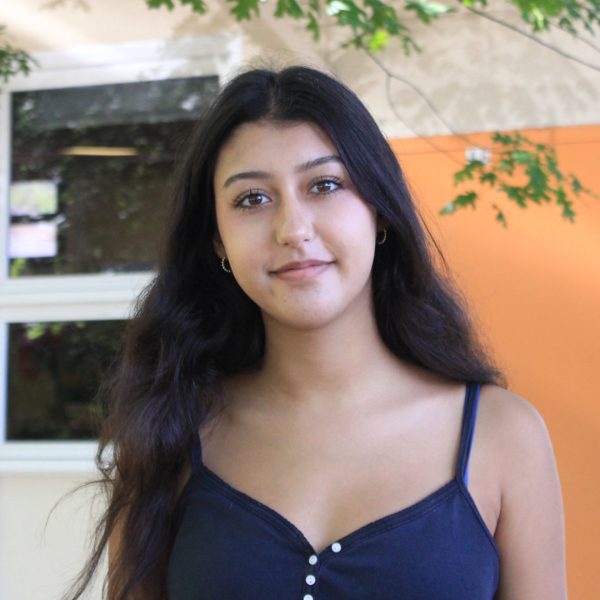When YouTube started to take off in the 2010s, the wide world of children influencers did with it.
Many kids, including myself, grew up watching child influencers, whether it be family vlogs, gaming, pranks or craft channels. Due to the popularity of kid-centered content, these channels can end up making tens of thousands of dollars for the parents running the business. However, this raises issues regarding the level of exploitation of using one’s own kids for personal gain. This becomes even more pressing when you consider the sheer amount of child influencers with the rise of social media other than YouTube, such as TikTok or Instagram reels.
When one thinks of “child exploitation” in terms of filming kids for social media content, one may think of internet-famous cases such as the channel called “8 Passengers” on YouTube. In early 2015, mother Ruby Franke started a YouTube vlog channel documenting the seemingly wholesome lives of her, her husband and their six children, said The New York Times. The channel was centered around their daily lives, specifically as a Mormon family, and they had amounted 2.5 million followers as of 2020. There were a few controversies regarding the kids’ well-being while the channel was running. Some include one of the boys being made to sleep on a bean bag for months, and a six-year-old girl being expected to pack her own lunches if she wanted to eat at school. Regardless of these questionable parenting methods, the channel ran until 2022, which is also the year Ruby Franke divorced her husband Kevin Franke. Later in 2022, Franke started a new channel with her ex-coworker Jodi Hilderbrandt called “ConneXions.” The channel centered around parenting advice. A year later, Franke’s twelve-year-old son, covered in wounds and duct tape, escaped from Hildebrandt’s house in seek of help, leading emergency services to discover his malnourished ten-year-old sister. On Aug. 30 2023, Franke and Hildebrandt were both convicted of six counts of aggravated child abuse.
This tragic case is one blatantly clear example of the parents of child influencers prioritizing their fame and economic prosperity over the well-being of their children. The kids in abusive situations like the Franke family can be manipulated into staying quiet about the mistreatment. When child influencers are the main source of income of a family, they are being placed under the impression that everything their parents make them do is for the channel, and therefore for the family. This makes these kids less likely to stand up to their parents or seek help in clearly dangerous situations, in fear of it affecting the family’s success. In the case of the Franke’s, the abuse of the child influencers was physical and undeniable no matter who the witness was, but exploitation doesn’t always involve physical harm.
Another incredibly famous child influencer who has been the center of much exploitation controversy is the YouTuber, singer and social media star Piper Rockelle. Rockelle’s YouTube and Musically (now known as TikTok) channels began in 2016 when she was eight years old. The account was managed by her mother, Tiffany Smith, more commonly known as Tiffany Rockelle. The Rockelle channel covered a variety of things but is best known for the staged drama videos, starring teen romance and friendship. In January 2022, Smith and her boyfriend Hunter Hill were sued by 11 different teen content creators, eventually settling for 1.85 million. These 11 other teens were some of the ever-changing members of the “Piper Squad” which was the group of hired children who participated in the skits for the channel. Smith and Hill were accused of emotional distress, abuse and unpaid work. Smith denied her wrongdoing and had countersued for $30 million, accusing the plaintiffs’ guardians of extortion, but later abandoned the lawsuit. Smith has also been accused of over-sexualizing Piper to rack in more views. Piper’s revealing outfits and romance-centered skits pose evidence for these claims.
Putting not only her own child but other teens in this mentally strenuous content business clearly shows Smith’s greed for fame and complete disregard for the children. Piper has been working as this cash cow for her mom since eight years old, missing out on a normal, stress-free childhood. No kid should have to work for their parents full time like this, not only is it mentally disastrous, which was proven through the lawsuit, but it puts these kids in vulnerable positions. By putting her underaged daughter in clearly inappropriate situations, Smith is exposing her to thousands of dangerous predators across the internet which demonstrates how little she truly cares about her daughter’s well-being in comparison to money and fame. Regardless if young Piper agreed to this or not, I don’t believe that a child could consciously make the choice to participate in content creation channels such as Rockelle’s. No child can truly understand what they are getting themselves into without including the bias of their parents.
So why aren’t there laws preventing clear exploitation like that of the Rockelle’s or Franke’s? And is there any guarantee that these child influencers will be compensated for their work when they are 18? Recently, California followed Illinois in passing a law that ensures that these children will be compensated. California law states that parents managing these channels create a trust for the kids, earning at least 10 cents per view. Kids featured in YouTube videos will have 15% of the earnings placed in their trust. If the parents don’t comply, the children are permitted to sue. But it’s important to consider if the child influencer were to sue, they would have to be aware of the law as well as be willing to sue their parents in the first place. This law also does not protect the child’s privacy. For example, a law France placed in 2020 provides not only financial ensurement but also any channels or content featuring the child must be taken down at the child’s request.
It’s clear that child content creation has its fair share of moral dilemmas, including concerns about privacy, economics, and the mental and physical well-being of children. I personally hope that there are more laws passed in California and around the world to ensure more rights for child influencers so there are fewer unfortunate situations for these kids.






